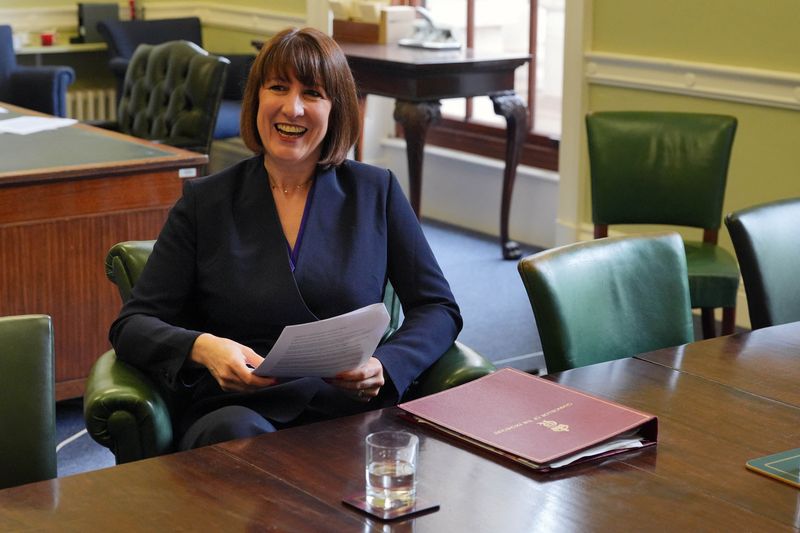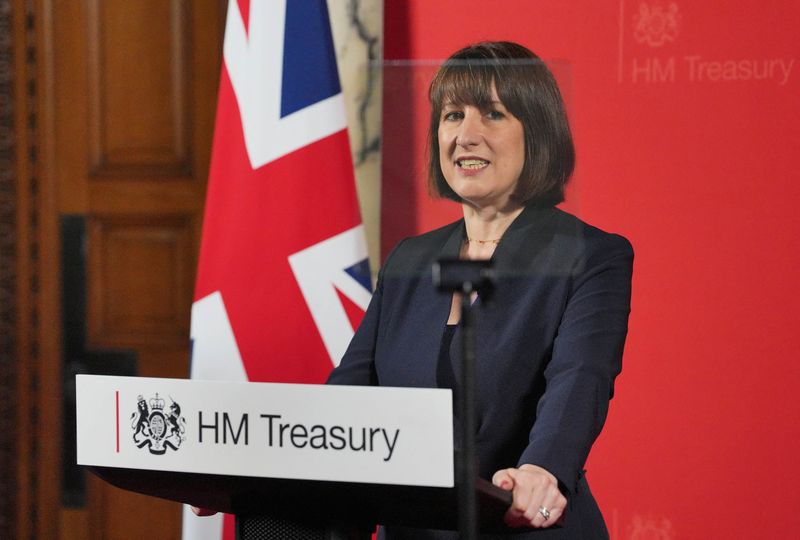LONDON (Reuters) - British finance minister Rachel Reeves told parliament on Monday that she would hold her first annual budget on Oct. 30, after the Labour Party won a decisive election victory on July 4.
The budget will set out new tax and spending plans and a fresh set of fiscal and economic forecasts from the independent Office for Budget Responsibility, as well as revised bond issuance targets from the UK Debt Management Office.
Britain's last budget was on March 6 under Conservative finance minister Jeremy Hunt.
Reeves says the Conservatives had handed over the worst economic legacy since World War Two and on Monday detailed areas where she said they had overspent or failed to budget appropriately.
British public sector net debt in June totalled 99.5% of annual economic output, the highest since the early 1960s, or 91.6% on the government's preferred measure which excludes debt related to Bank of England operations.
This debt level leaves Britain mid-table in the Group of Seven large, advanced economies.

The budget deficit in the 2023/24 financial year amounted to 4.5% of GDP, the lowest since the start of the pandemic and well below the 10.3% in Labour's last full fiscal year in government in 2009/10 during the global financial crisis.
Taxation as a share of GDP is the highest since the late 1940s.
